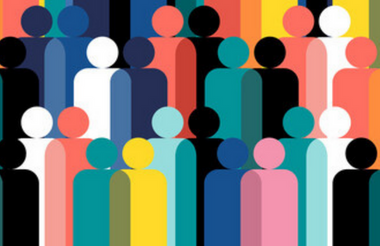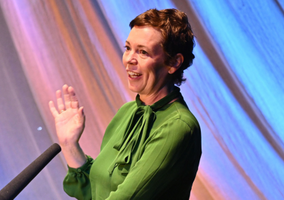What do ActionAid UK (AAUK), the Metro Centre, Titan Partnership and Transform Drug Policy Foundation have in common? The answer: all charities announced this year that they had appointed co-CEOs.
Although job sharing – whereby two or more employees share the same role in an organisation – appears to be more prevalent in the public sector, an increasing number of charities have become receptive to the idea.
Research has shown that job sharing offers a range of benefits to both employers and employees, including greater diversity in teams, enhanced productivity, creativity and innovation and an improved work/life balance.
Campaign group Empower, which aims to level the playing field between men and women, argues that job sharing can play a key role in supporting women to thrive in more senior roles, helping reduce the gender pay gap.
“Empower believes job sharing roles are a critical solution to many of the issues women most commonly face in the job market,” it wrote in a report published last year.
“Based on a trajectory rate from 2023, it would take at least 30 years for women to catch up to men’s participation rate in the labour force. Job sharing could provide an opportunity for acceleration both in terms of participation and in the advancement of women in more senior positions.”
Feminist leadership
International development charity AAUK is one of the organisations that has included more women in senior leadership roles.
In March, the charity announced its appointment of a co-leadership team to guide the organisation into its next phase of impact and growth following former CEO Halima Begum’s move to Oxfam GB.
Director of advocacy and influencing Hannah Bond, director of people and culture Shade Odupelu and director of innovation and impact Taahra Ghazi became interim co-CEOs alongside their respective roles.
AAUK said Bond, Ghazi and Odupelu bring different skills and experiences to the joint role and that having a “feminist leadership structure” and sharing power would support its aim to achieve social justice and women’s and girls’ rights in the countries where it operates.
Bond tells Civil Society: “AAUK has feminist behaviours and principles. For an organisation that is striving to live those, to have a co-CEO model is a way in which you can do that. You’re sharing power by the very nature of the fact that there are three of you.
“You’re challenging some of those normal power, hierarchical, patriarchal and racist systems that govern our world.
“We still live within those, but we’re demonstrating that you can do something very different, and, hopefully, have different outcomes and impact.”
‘Being a CEO on your own is a heavy responsibility to bear’
There is no one-size-fits-all approach when it comes to co-leadership and every organisation will have different agreements depending on its needs and the nature of the role.
At AAUK, Odupelu says internally all three co-CEOs have ensured that staff members are clear in terms of what each’s remit is because they do not want duplication of effort.
“We don’t want to be tripping over each other. We’ve spent time over the last four months stabilising and being clear on who’s responsible for what. We’ve removed any confusion and constantly communicate that.
“We always try to re-establish those boundaries because we need to in terms of looking after ourselves but also others. We want to ensure that they have what they need to do their jobs.
“We don’t want – because there are three of us – delays. It’s got to be agile and quick.”
There is a perception that co-leadership can be a complex model, but Bond, Ghazi and Odupelu say it has not been that complicated.
“So far so good,” says Odupelu.
“We trust each other and that’s very important to make the right decisions and not make it about ourselves. We have shared goals and vision, which makes it easy for us to collaborate.
“Job sharing with Taahra and Hannah is a true blessing because even if we’re having a bad day, we know that we can rely on each other to show up – it’s not just one person. We’re human beings and that’s a really good thing with this model.”
Ghazi says that “being a CEO on your own is a heavy responsibility to bear”.
“Having three of us has been so helpful in not just being able to help one another through that, but also bringing a different kind of energy,” she adds.
“The energy you bring as one person is completely different to the energy you bring as three women. That’s the biggest lesson for me, especially if we’re in sync with one another.”
Finding solutions
Ghazi says that the three co-CEOs do not always agree but never leave the room without finding a solution.
“We haven’t disagreed on a key decision so far. We have different styles, ways of working and personalities. That’s something we had to get used to in the first six weeks.
“It hasn’t been perfect. There have been times when we’ve become irritated with one another, partly through being extremely tired and perhaps not understanding each other.
“When you have a different way of working or style of saying something, sometimes you can misunderstand.”
She adds it is important that they listen to each other and take a step back to reflect on things.
“We’ve had training and hours together learning about each other, how we work best, what’s our preferred learning style, what we find difficult and what’s our triggers.”
Seeing each other as equals
Birthrights, a small charity that advises people on their legal rights during pregnancy and childbirth, was not specifically looking for co-CEOs when it last recruited a new leader.
In 2022, the charity worked with sector recruitment agency Charity People to appoint its next leader after former CEO Amy Gibbs stepped down.
Charity People said that the interest in the role was particularly high and after a thorough hiring process, Shanthi Gunesekera and Janaki Mahadevan were appointed as co-CEOs.
Gunesekera and Mahadevan had previously worked as a job share since early 2019, leading the Greater London Authority’s policy and programmes delivered under mayor Sadiq Khan’s social integration strategy.
The pair applied for the role together, telling Civil Society: “The application and interview process at Birthrights was great and really inclusive, respecting that we had applied as a pair and came as a package.”
They say co-leadership can “only be a superpower if you have a genuinely open, trusting and respectful partnership where you both see yourselves as equals”.
“Our partnership has been founded on those principles and the years working together have only served to strengthen our understanding and respect of each other – so for us, it’s only ever been a positive experience.
“You have to be able to laugh and cry together and say if something isn’t working in the relationship.”
It also helps if the people who interact with those involved in a job share are on board, respect that partnership and want to see it succeed, they add.
“Ever since we started working together five and a half years ago, we made a conscious effort to share responsibility for everything in our remit so that neither of us became the default person for certain tasks.
“This meant from the outset that we considered each other as equals and made this clear to our teams.”
‘We’re always there to lift each other up when times are tough’
Gunesekera and Mahadevan say another benefit of job sharing is that “you get to work with someone who is as equally invested in your success and the job as you are”.
That is invaluable, they say, “especially when there are inevitable wobbles in confidence or when mistakes are made that we can learn from together”.
“Having two people in the same role means we can constantly be there to support and challenge each other – and, importantly, we’re always there to lift each other up when times are tough.
“We bring two minds, perspectives and skillsets to our roles, so we have a broad range of strengths and the ability to learn from each other in areas we’re less confident or experienced in.”
This is a sentiment echoed by Bond, Ghazi and Odupelu, who agree that sharing the job has allowed them to open up their learning, manage their workloads and achieve a better work/life balance.
Bond says: “There’ll always be somebody who’s on, somebody who’s able to reach out to and somebody who can support in whatever that moment is.
“I have valued that so much. I don’t think I'd ever want to go back to doing any job on my own.”
Broadening opportunities through job sharing
Gunesekera and Mahadevan say that job-sharing opportunities are crucial to broadening the opportunities available for people who want or need to work part-time.
Plus, this model of working allows individuals to support each other to grow and hold each other through the challenges they face.
They say: “As women of colour with two young children each, we would never have considered a CEO job as possible for us at this stage of our lives or careers, had we not been in a job share partnership together.
“We couldn’t imagine navigating some of the discriminatory challenges or power dynamics we face as charity leaders without being in sisterhood with each other.
“If organisations genuinely want to recruit, retain and promote diverse talent, job-sharing opportunities at every level of the organisation must be part of that solution and should be promoted to all, not just women.”
Related articles












